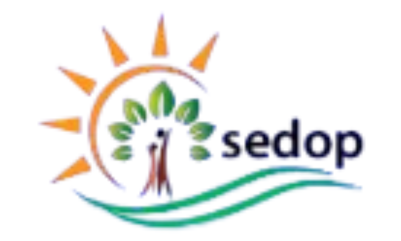SEDOP at a Glance
SEDOP at a Glance
Socio Economic Development Organization for the Poor (SEDOP) is a non-profitable voluntary organization established on 20th July 2004 and obtaining registration in October 22, 2008 aiming to improve the quality of life of socially and economically unprivileged, marginal, landless and poor people and upholding the philosophy of ensuring people’s rights. Socio Economic Development Organization for the Poor (SEDOP) is a voluntary development organization engaged in aiming to improve the quality of life and livelihoods of socially and economically unprivileged, marginal, landless and poor people and upholding the philosophy of ensuring people’s rights. Towards its journey, SEDOP is working in agricultural development, facilitating business development services to ensure market development for agriculture agricultural products, adult and child education, water and sanitation, mother and children care support, human and child right, climate change resilience for disadvantaged hardcore poor people as part of achieving organizational vision of success. SEDOP also experienced in managing the programs with funds and technical assistance in collaboration and partnership with Government agencies, private and business organizations, national and international development agencies, local level Government extension agencies like Department of Agricultural Extension (DAE), Public Health Department, Department of Fisheries (DoF), and other agencies. Since 2004, SEDOP has been operating multi-faceted development programs with a view to uplifting socio-economic condition of the underprivileged and disadvantaged poor people through a set of activities, includes The organization’s program approaches are transforming over 16 years to improve quality projects for the poor, vulnerable people with a particular focus on coastal zone in Bangladesh. SEDOP has undertaken Promoting Business development services for enhancing agricultural Value chain Socio Economic Development, Household Livelihood and Food Security, Health, Hygiene, Water and Sanitation, Agricultural Development, Non-formal Education and Capacity development, Promoting Gender Equity and Diversity, Income Generating through Livelihood improvement, Sustainable Environment and Biodiversity Conservation, & Disaster Preparedness and Management , climate change and environmental resource management, human rights programs. Throughout the period (22 years), the organization has gained a substantial amount of experience and has developed a sound capacity those areas. So far, SEDOP has successfully implemented 40/50/60 projects. SEDOP has covered 1039 Unions of 197 Upazilas under 13 districts in all divisions in Bangladesh.
SEDOP is implementing the activities through 62 offices including it’s head office in Khulna. Additionally, SEDOP has 278 regular staff and 139 paid volunteers with a vast experienced on management, health & nutrition, education, finance, gender, DRR, food security, agriculture, institutional capacity building, engineering, research, training, and so on. Currently, the organization is handling BDT 1615980601 (2020-2021 fiscal years) development partners. Moreover, SEDOP is a member of different networks both at local and national level and works for the betterment of the beneficiaries or development partners. The organization is committed to focus on holistic development and encompassing management framework with the participation of development partners, donor, and government, NGOs, community and private sectors.
Fundamental Philosophy of SEDOP:
Human potential is infinite. The point is to explore its multi-dimensional manifestations and harness it to promote human welfare.
Basic Principles of SEDOP:
- Equality and neutrality
- Upholding national interest
- Safe-guarding the interest of the backward, socially disadvantaged and Hard Core People Poor(HCP) community
- Democratic culture, transparency and accountability
- Ensuring a secure home land for future generation
Strategic Direction of SEDOP:
- To improve livelihoods of vulnerable communities in Bangladesh with special attention t coast, riverbank , wet bans, and hill tracts;
- To improve health condition and education of the vulnerable people;
- To secure human rights and good governance;
- Sustainable environmental and resources management in eco-sensitive areas;
- Reduce disaster vulnerabilities;
- Adaptation and mitigation of adverse impact of climate change;
- Develop peoples’ organization and leadership;
- Expand SEDOP an effective development institution to serve the vulnerable community in Bangladesh.
Implementation Methods:
- Participatory
- Democratic
Development Approach of SEDOP :
- Right Based Approach
- Empowering approach
- Networking and partnership approach
- Conflict sensitive approach
- Farming system approach
- Sustainable development approach
Cross-cutting Issues:
- Gender & equity
- HIV/AIDS
- Transparency & Accountability
- Sustainability
- Value for Money
